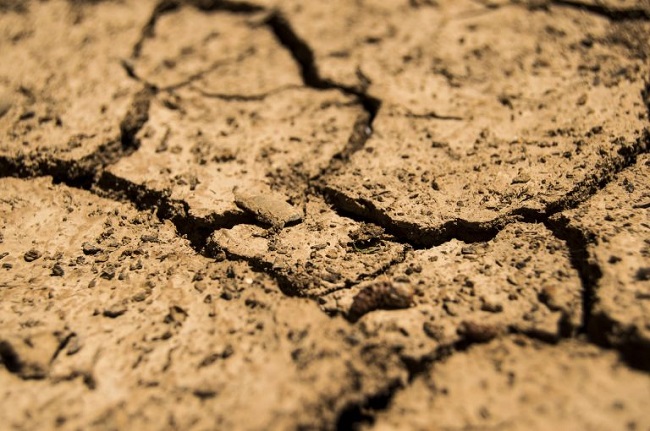
Salinity is the measure of the total amount of soluble salt in the soil. As the amount of salt increases, it becomes more difficult for the plant to extract the water out of the soil. Saline soil in farms and gardens is becoming a worldwide problem. High concentrations of salt impact crops in a number of ways, from a reduction in yield all of the way to total crop failure.
According to a United Nations report soil salinity is such a problem that the UN…
… estimates that 2,000 hectares of farmland (nearly 8 square miles) of farmland is ruined daily by salt degradation. So far, nearly 20 percent of the world’s farmland has been degraded, an area approximately the size of France.
There are 4 common solutions to farming in high salinity soils. While there are other methods used, the methods discussed in this article are the most common and generally the most successful.
Improving Drainage and Leaching
First, if adequate water sources and good drainage are available, the soils can be washed (leached) to remove the excess salt. Drainage is an absolute must, because the water must move through soil and not just run off the surface.
Select and Plant Salt Tolerant Crops
Plants widely vary in their salt tolerance. One method to control saline soils is to plant crops that have a high salt tolerance. Crops selection varies greatly by climate so check with your local farm extension bureau to determine the appropriate crops in your area.
Use Biofertilizers containing Bacillus subtilis GB03
Biofertilizers are living microorganisms that are used to help plants grow more efficiently. They are used in agriculture, farming and gardening to improve crop performance and take advantage of microbe plant interactions. These interactions are synergistic. In other words, they are beneficial for both the plant and the microorganism.
One beneficial microorganism that is used for high salinity soils is Bacillus subtilis GB03. This microorganism is a bacterium that has been found in soils with a high salt concentration. B. subtilis GB03 has been shown to promote growth and reduce some types of plant stress. This bacterium is also helpful for the plant in seed germination. Additionally, it has proved valuable in both drought and salt tolerance.
Applying Chemical Treatments
Applying chemical treatments is another way to treat high salinity soils. However, this method can be time consuming and expensive. It is best to consult with an expert before trying to chemically treat your soil to reduce problems with salinity. For many soils, some type of combination of the above methods may be the best option.
Bill Baugh is a product manager for a manufacturer and distributor of innovative microbial products.
Related Articles & Free Email Newsletter Sign Up
How to Improve Garden Soil with Cover Crops




Comment here